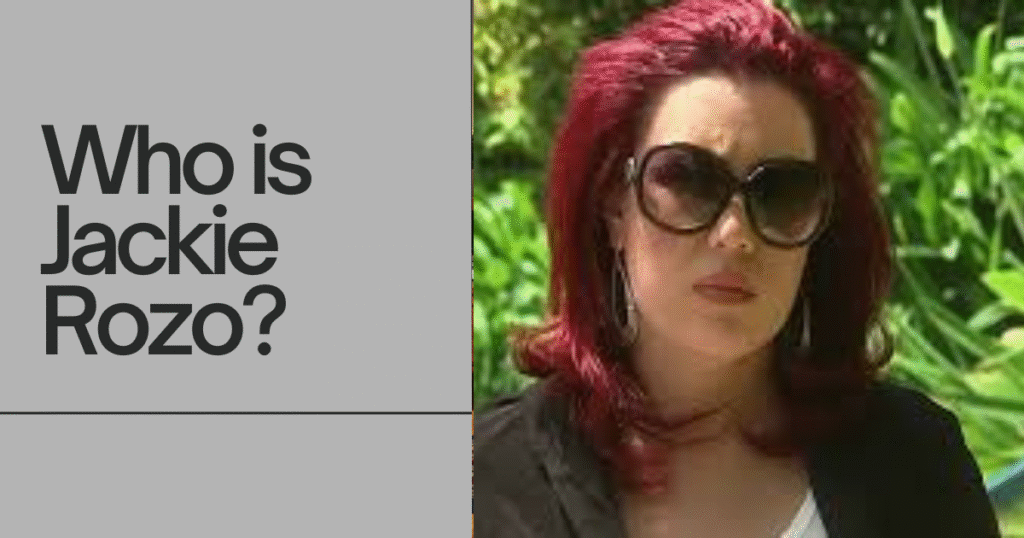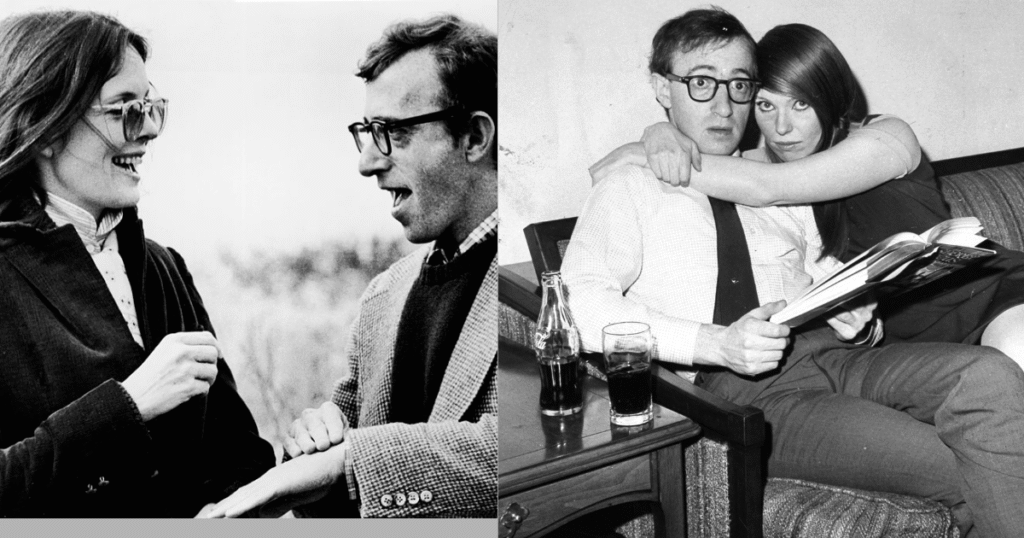
Lindberg Mescudi was the father of rapper Kid Cudi whose values and early influence shaped one of hip-hop’s most emotionally honest artists before passing away from cancer in 1995
If you’re wondering who Lindberg Mescudi was and why his story matters, you’re looking at the man who gave Kid Cudi the foundation of strength, discipline, and creativity that now touches millions through music. His life wasn’t famous, but it was powerful.
| Attribute | Details |
|---|---|
| Full Name | Lindberg Styles Mescudi |
| Date of Birth | June 21, 1927 |
| Place of Birth | Cleveland, Ohio, USA |
| Ethnicity | African-American and Mexican |
| Spouse | Elsie Harriet Mescudi (married 1979) |
| Children | Domingo, Maisha, Dean, Scott (Kid Cudi) |
| Occupation | U.S. Air Force Veteran, Substitute Teacher, House Painter |
| Date of Death | 1995 |
| Cause of Death | Cancer |
| Age at Death | 68 years |
Who Was Lindberg Mescudi?
Lindberg Styles Mescudi was a World War II Air Force veteran, substitute teacher, and father of four who lived a quiet but meaningful life in Cleveland, Ohio. Born into a multicultural family on June 21, 1927, he carried both African-American and Mexican heritage through his parents—Charles Manitow Mescudi from New Mexico and Essie Viola Lawson from Pennsylvania.
Growing up as one of six siblings, Lindberg learned early about family responsibility and cultural pride. He had three older brothers (Udeal, Cois, and Marvin), one younger brother (Charles), and one sister (Essie Ella Rannet). This large family structure taught him resilience, which he later passed to his own children.
His life revolved around service, work, and family. After serving his country during World War II, he returned to Cleveland where he worked multiple jobs to support his household. He wasn’t chasing fame or fortune—just providing for the people he loved.
Early Life and Cultural Background
Lindberg’s childhood in Cleveland during the 1930s and 1940s shaped his character in profound ways. He grew up during the Great Depression when African-American and Mexican families faced significant economic and social challenges. His mixed heritage gave him a unique perspective on identity and belonging.
His father Charles brought Mexican traditions and values into the home, while his mother Essie instilled African-American strength and resilience. This combination created a household where hard work, education, and dignity were non-negotiable principles.
The Mescudi family wasn’t wealthy, but they were rich in values. Lindberg watched his parents navigate a segregated America while maintaining their pride and humanity. These lessons stuck with him throughout his life and eventually influenced how he raised his own children decades later.
Military Service During World War II
Lindberg joined the U.S. Air Force during World War II, serving his country when racial segregation was still deeply embedded in American military and society. African-American and minority servicemen faced discrimination even while risking their lives for freedom.
His decision to serve showed courage and patriotism. The military taught him discipline, structure, and sacrifice—qualities that became central to his identity. Veterans of that era returned home to a country that didn’t always honor their contributions, but Lindberg carried his service with quiet pride.
The Air Force experience shaped his approach to parenting. He believed in discipline balanced with love, structure paired with creativity, and responsibility mixed with compassion. These military-influenced values became the blueprint for raising his four children.
Career Path: Teacher and House Painter
After returning from military service, Lindberg built a working life that reflected both his intellectual interests and practical skills. He worked as a substitute teacher in Cleveland schools, stepping into classrooms to guide students and emphasize the importance of education.
Teaching wasn’t his only profession. He also worked as a house painter, using his hands to earn additional income for his family. Some might see these as modest jobs, but they revealed his character—he wasn’t too proud to work hard in any capacity.
His dual careers showed his children that success isn’t always about glamorous positions. It’s about showing up, doing honest work, and providing for the people who depend on you. This work ethic became one of his most important legacies.
Marriage to Elsie Harriet Mescudi
In 1979, Lindberg married Elsie Harriet, a choir teacher at Roxboro Middle School in Cleveland Heights. He was 51 years old, and she was 30—a 21-year age gap that might raise eyebrows today, but their relationship worked on mutual respect and shared values.
Elsie came from Tennessee and dedicated her career to music education. Her creative spirit complemented Lindberg’s disciplined nature. Together, they created a home where education, creativity, and family values were priorities.
Their marriage produced four children: Domingo, Maisha, Dean, and Scott Ramon Seguro Mescudi—the youngest, who would later become Kid Cudi. Despite the age difference, Lindberg and Elsie built a stable, loving household where their children could grow and dream.
Elsie is still alive today, living in Cleveland and frequently appearing at award shows to support her famous son. Their bond remains strong, a reflection of the family foundation Lindberg helped establish.
People Also Love to Read This: Who Is Christa Podsedly: The Strategic Mind Behind Scott Steiner’s Empire
Fatherhood and Parenting Style
Lindberg approached fatherhood with the same dedication he brought to his military service and work life. He believed in discipline but never without love. He pushed his children to excel but supported them when they struggled. He valued education, respect, and honesty above all else.
For young Scott, who would become Kid Cudi, Lindberg was a guiding force during his most formative years. He encouraged creativity while teaching responsibility. He showed his son what it meant to be a man through actions, not just words.
Lindberg didn’t have much money to give his children, but he gave them something more valuable—values that would carry them through life’s hardest moments. He taught them to work hard, stay humble, and never forget where they came from.
His presence in the home created stability. The Mescudi children grew up knowing they were loved, protected, and expected to be their best selves. This foundation would prove critical when tragedy struck.
The Devastating Loss: Cancer Takes Lindberg in 1995
In 1995, Lindberg Styles Mescudi lost his battle with cancer at age 68. His death came suddenly and devastatingly, especially for his youngest son Scott, who was only 11 years old at the time.
Losing a parent at 11 years old creates a wound that never fully heals. For Kid Cudi, his father’s death marked the beginning of a long struggle with depression, loneliness, and mental health challenges that would shape both his life and his music.
Elsie was left to raise four children alone. The family dynamic shifted overnight. Scott, still a child, had to process grief that most adults can barely handle. He felt lost, angry, and confused—emotions that would later pour out through his artistic expression.
The timing of Lindberg’s death meant he never saw his son become famous. He never heard “Day ‘n’ Nite” on the radio or watched Scott walk red carpets. But his influence on Kid Cudi’s journey remained stronger than any physical presence could have been.
How Lindberg Shaped Kid Cudi’s Music and Mental Health Journey
Kid Cudi’s music is deeply personal, and much of it traces back to losing his father. Songs like “Soundtrack 2 My Life,” “Solo Dolo,” and “The Prayer” directly reference the emptiness and search for meaning that followed Lindberg’s death.
Cudi has been open about his struggles with depression and suicidal thoughts, issues that began in his teenage years after his father passed. Instead of hiding this pain, he transformed it into music that helped millions of fans who faced similar darkness.
His willingness to be vulnerable about mental health broke barriers in hip-hop, a genre that traditionally emphasized toughness over emotional honesty. This courage to share pain came from the values Lindberg instilled—honesty, authenticity, and the strength to face difficult truths.
In interviews, Cudi often credits his father’s early teachings with giving him the resilience to survive his darkest moments. Even in absence, Lindberg’s lessons about discipline and perseverance kept his son moving forward when giving up seemed easier.
Lindberg’s Legacy Lives Through Vada Wamwene Mescudi
Kid Cudi became a father himself in 2010 when his daughter Vada Wamwene Mescudi was born. Her name blends Germanic and Kenyan origins, meaning strength and purpose—qualities Lindberg embodied throughout his life.
Cudi has spoken about how fatherhood changed him and connected him back to his own father’s memory. Raising Vada gave him new understanding of what Lindberg must have felt watching his own children grow.
To honor his daughter, Cudi launched a sneaker line called “Vadawam 326,” incorporating her birthdate into the brand name. This gesture shows how the values of family and legacy that Lindberg started continue through multiple generations.
Vada represents the continuation of Lindberg’s influence—a grandfather she never met but whose values flow through her father’s approach to parenting. The cycle of love, discipline, and creativity continues.
What Was Lindberg Mescudi’s Net Worth
Lindberg Mescudi was never wealthy, and no public records exist of his financial worth. As a substitute teacher and house painter, he earned enough to support his family but didn’t accumulate significant wealth.
His net worth can’t be measured in dollars. The real value of his life shows in what he gave his children—work ethic, values, cultural pride, and unconditional love. These intangible assets proved more valuable than any bank account.
While his son Kid Cudi now has an estimated net worth in the millions from music, acting, and fashion ventures, Lindberg’s legacy isn’t tied to money. It’s tied to the man his son became and the millions of lives that man has touched through honest, healing music.
The Cultural Impact of Lindberg’s Story
Lindberg’s story represents countless African-American and Latino fathers who worked hard, served their country, and raised families without recognition or fame. His multicultural heritage reflects the beautiful complexity of American identity.
His life reminds us that the people who shape culture aren’t always the ones in spotlights. Sometimes they’re substitute teachers and house painters who show their children how to live with dignity, work with purpose, and love without condition.
Through Kid Cudi’s success, Lindberg’s influence has reached millions worldwide. Fans who’ve never heard his name still benefit from the values he taught his son—the courage to be vulnerable, the strength to face mental health struggles, and the importance of staying true to yourself.
Lessons From Lindberg Mescudi’s Life
Lindberg’s life teaches us several important lessons that remain relevant today:
Hard work matters more than job titles. He worked as a teacher and painter without shame, showing his children that honest work has dignity regardless of prestige.
Values outlive wealth. He didn’t leave money behind, but the principles he taught his children created success that money alone never could.
Cultural pride shapes identity. His African-American and Mexican heritage gave him strength during difficult times and taught his children to embrace their own complex identities.
Presence matters more than longevity. Though he died when Scott was only 11, Lindberg’s influence shaped his son’s entire life and career.
Fatherhood creates ripples across generations. The way Lindberg raised his children affected how Kid Cudi raises his daughter, creating a legacy that continues growing.
Final Thoughts
Lindberg Styles Mescudi lived 68 years without fame, fortune, or public recognition. He served his country, worked multiple jobs, raised four children, and died too young from cancer. By conventional measures, his story might seem ordinary.
But look closer and you’ll see something powerful. His values shaped Kid Cudi, who turned personal pain into music that helped millions face their own struggles. His multicultural heritage gave his children pride in their complex identities. His work ethic taught them that success comes through dedication, not shortcuts.
Every time someone plays “Day ‘n’ Nite” or finds comfort in Kid Cudi’s honest lyrics about depression and loss, Lindberg’s influence ripples outward. Every time Cudi speaks openly about mental health, breaking stigmas in hip-hop and beyond, his father’s lessons about courage and authenticity echo forward.
Lindberg Mescudi wasn’t famous, but he was important. His life proves that the hands that shape legends aren’t always the ones holding microphones—sometimes they’re holding paintbrushes, teaching in classrooms, and hugging children goodnight.
People Also Love to Read This: Siozinis: The Complete Blueprint to Lithuania’s Most Profitable Comedy-Gaming Fusion
Frequently Asked Questions
Who was Lindberg Mescudi?
Lindberg Styles Mescudi was Kid Cudi’s father, born on June 21, 1927, in Cleveland, Ohio. He served in the U.S. Air Force during World War II and later worked as a substitute teacher and house painter. He married Elsie Harriet in 1979 and had four children before passing away from cancer in 1995 at age 68. His values and early influence significantly shaped Kid Cudi’s life and music career.
How did Lindberg Mescudi die?
Lindberg Mescudi died from cancer in 1995 when he was 68 years old. His death occurred when his youngest son Scott (Kid Cudi) was only 11 years old. This loss profoundly affected Kid Cudi’s mental health and became a recurring theme in his music, particularly songs dealing with depression, loneliness, and grief.
What was Lindberg Mescudi’s ethnicity?
Lindberg Mescudi was of mixed African-American and Mexican heritage. His father Charles Manitow Mescudi was from New Mexico with Mexican roots, while his mother Essie Viola Lawson was an African-American woman from Pennsylvania. This multicultural background gave Lindberg and his children a rich cultural identity that influenced their worldview.
Is Lindberg Mescudi’s wife still alive?
Yes, Elsie Harriet Mescudi is still alive and living in Cleveland, Ohio. She retired from her career as a choir teacher at Roxboro Middle School in Cleveland Heights. Elsie frequently attends award shows and public events to support her son Kid Cudi, and they maintain a close relationship decades after Lindberg’s passing.
How did Lindberg Mescudi influence Kid Cudi’s music?
Lindberg’s influence on Kid Cudi’s music is profound and emotional. After losing his father at age 11, Cudi channeled his grief, depression, and sense of loss into his art. Songs like “Soundtrack 2 My Life,” “Solo Dolo,” and “The Prayer” directly address the pain of growing up without his father. The values Lindberg taught about honesty, resilience, and authenticity also shaped Cudi’s willingness to openly discuss mental health struggles in his music.









